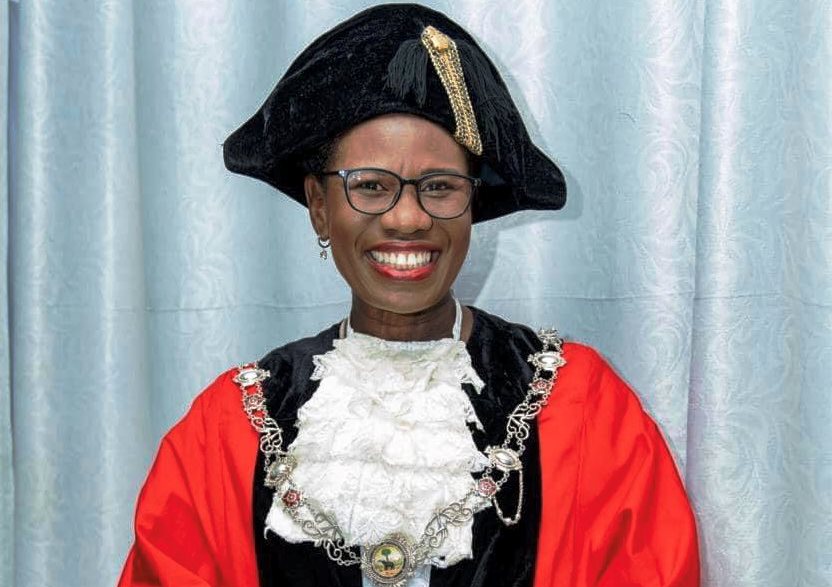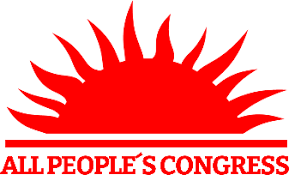By Aruna Kargbo
If you’re looking for a list of significant recent achievements by the Freetown city council, good lick finding any online. A quick google search will mostly get you a Wikipedia page rife with grammatical errors, a Facebook page completely devoid of any kind of information and dozens of old media articles criticizing the FCC’s lack of performance as well as their involvement in one financial scandal or another.
The Freetown City Council describes itself as one of the “most powerful municipal government in Africa” whose powers include but are not limited to:
- Collecting local taxes
- City cleaning and trash collection
- Ownership of its own municipal police fore
- Controlling streets and petty trading
- Issuance of business licenses to shop owners and petty traders
- Monitoring of motorcycles and bike riders
- Removal of abandoned vehicles from the streets
A simple walk from one end of siaka Stevens Street to the other is enough to inform even the most casual to that the “most powerful municipal government’’ has not been able to deliver to any degree of satisfaction on any of these “power.’’ The City Council’s status as a punching bag for not only the media but disgruntled citizens has become something of a running joke. After all Freetonians have, for the most part, learnt to live with the filthy streets, the out of control street trading and the carcasses of old cars littered around the city. Many find it funny, for instance, that the City Council would complain about not being able to do their work due to non-payment of Local Taxes by the public, even though as a commenter puts it, they can “hardly” point to a project they have embarked on and successfully executed…’’
But what happens when something occurs that isn’t funny at all? What happens when a matter arises that is so “grave’’, the public cannot stomach it and the FCC is required to take swift and effective action? The “grave” matter in question: is the relatively recent spate of grave robberies that can be numbered in the hundreds? According to an AFP article, “twenty- four hour security was now in place at all the city cemeteries including armed police guards to foil the robbers, the council’s environment and social officer Sulaiman Zainu-Parker told national radio.” However, when sierra Eye spoke to Freetown City Council Spokesman Cyril Mattia, he gave the impression that all the FCC can do is rely on reports phoned in by people who live near cemeteries. “We were asking people who are very close to the cemeteries to be very watchful and report back to the council when they see anything and believe you me that is a clear example of what they are doing. I think that mechanism is working, we are getting a lot of information as of now that is being sent to us.’’ he told sierra Eye. Mattia insists this strategy is working “slowly but surely’’ but he went on to confess that the metropolitan police failed to make it on time when someone phoned in to report that individuals wearing black overalls had been seen entering the Ascension Town cemetery at three in the morning. “ They were able to ascertain that the report was true but by the time they got there the individuals had left.”
In the right circles, grave robbing [the act of removing valuables that have been buried with corpses and body snatching [the act of stealing the actual corpses] can be very profitable enterprises. In the 18th and 19th century, fresh corpses were especially valuable on the black market due to a rising demand for cadavers for medical study. In more modern times, body snatchers have been known to make millions of dollars in selling human organs and body part for transplant. The practice is why it is recommended that cemeteries be walled and /or guarded. Apart from the fact that, as mattia puts it, “a good number of our cemeteries are located in areas where it seems as if the living and the dead are living together,” the council simply cannot afford to erect protective fences or sustain 24-hr surveillance of the vast cemeteries. This leaves the impression of a City Council that can do nothing but hope that the grave robberies are just a phase that will blow over on their own.
This situation, in addition to the FCC’S already fragile image or restore the public’s confidence in them. From their perspective, it appears that only a giant boost in financial resources will. Payment of city rates on properties owned by inhabitants of the Freetown municipal took a dive when in 2012; top officials of the FCC were found guilty of breach of procurement rules and fined. Confidence in the FCC’S ability to handle city funds had already been on a downward spiral since the alleged embezzlement of over le 200 million in 1999 by the acting chairman. This has resulted in a stalemate where by taxpayers are understandably hesitant to pay city rates to the FCC and the FCC claims it cannot effectively operate without the revenue. According to mattia the financial scandals “will never happen again and we now working in line with the procurement office of Sierra Leone.’’ He laments that the council is being “tied to its past’’ and the new council has not yet had an opportunity to prove itself.
Interestingly, engagement with market women did not reveal a lack of trust due to the FCC’S track record in financial management. Their main issue with City Council is their failure to provide enough market and toilet facilities in some of the market that do exist. Some of them stated that if the FCC had more to show for the monies they have been receiving from the Freetown Municipality, people would be happier to fulfil their mandate to the council.
But payment of city rates is supposed to be an obligation and not an option based on the popularity of the government body. The FCC does have revenue collectors whose job it is to make sure that people pay their dues but mattia admits that the enforcement of tax payment. This, however, would increases the risk of the council being cast in an even more unfavorable light. The alternative has been to tell people how vital their tax payment is to the development of the city. Mattia claims that council has been doing well in this area but the amount of impact they have had remains to be seen.
That is not to say that no one at all is paying taxes. That raises the question, “where does the money go?” The pollution of Freetown’s streets is arguably the biggest sore point that the Freetown municipality has with its council. “most recently we paid masada Le1.2 billion to clean the city,’’ say Mattia “and then they came back and asked for another 800 million but the streets are still filthy…. Even managing the landfill sites costs huge money because the bulldozer needed to flatten the garbage at these sites can cost up to le 3million an hours, not counting the fuel.’’ He explains that in order to effectively clean a city like Freetown, “you need to own not less than forty Lorries that will go around collecting filth and taking it to the landfill site.’’
Apart from its financial troubles, the FCC struggles with a decided lack of influence in some areas and lack of expertise in others. The city of Freetown is in a valley and is thereby constantly under threat of natural disaster due to the sheer scope of mining and construction activity being done in the surrounding hills. “The mayor has requested of the ministry of works, Housing and infrastructure to stop giving permits to build building in hills,’’ Mattia. “Originally, the ministry of Lands, Country Planning and Environment issued permits and it led rancor between Lands and works. Eventually the responsibility was given to the ministry of works but if you go anywhere in this world, it will be very strange for anyone to tell you that their ministry of works gives out permits. That is the business of the local government. ’While he claims that he is not advocating that the council start handling issuance of building permits, there is little doubt that council believes that this task would be better suited to them.
The latitude with which the insane are allowed to roam the streets of Freetown has also raised some concern. Report of the notorious “Blacker “an insane man who is known for terrorizing passers-by with sharp implement such as razor blades and knives, have been on the increase. Others have complained about mad people spitting at them and generally being a nuisance. ‘The mad person is also an area of great challenge. The fact there is we don’t even have the technique to deal with them and that is why they have a hospital, a mental home, the Sierra Leone Physiatrist Hospital at Kissy, Which should be looking after these people. Information reaching us is that these people are not being well taken care of. Some of them do run away from the hospital and when you attempt to take them back, which we have done once or twice, the doctor there Doctor Muana is not pleased about that.’’
Council claims that with its limited resources mostly tied up in preventing Freetown from falling into total pollution apocalypse, it is nearly impossible for them to perform in other key areas like education and social welfare. The hitherto alluded to metropolitan police force comprises a mere 125 officers and council is unable to bolster those numbers or even properly equip them due to lack of funds. The position of “we can’t work if you won’t pay’’ take by the people has essentially created a quagmire out of which neither party can climb mattia makes reference to development plans for the city designed by council that remain unimplemented due to lack of funds. “The simple matter of cleaning a cemetery cost about 8 or 9 million Leones,’’ he laments. “People call us and expect us to do our duties but they are failing to empower the council.’’
With the prevailing situation as it is, the future of Freetown’s development looks grim. By its own admission, council does not generate any income. As the council struggles to regain the trust of the public, little to nothing is being done by way of alternative fundraising for way of projects. If they really want to win over the people and get they more involved in community building, the council needs to put itself out there and show their commitment towards making Freetown more conducive. Verbally coaxing the many years, the council needs to show its commitment as well as its relevance to the city of Freetown














